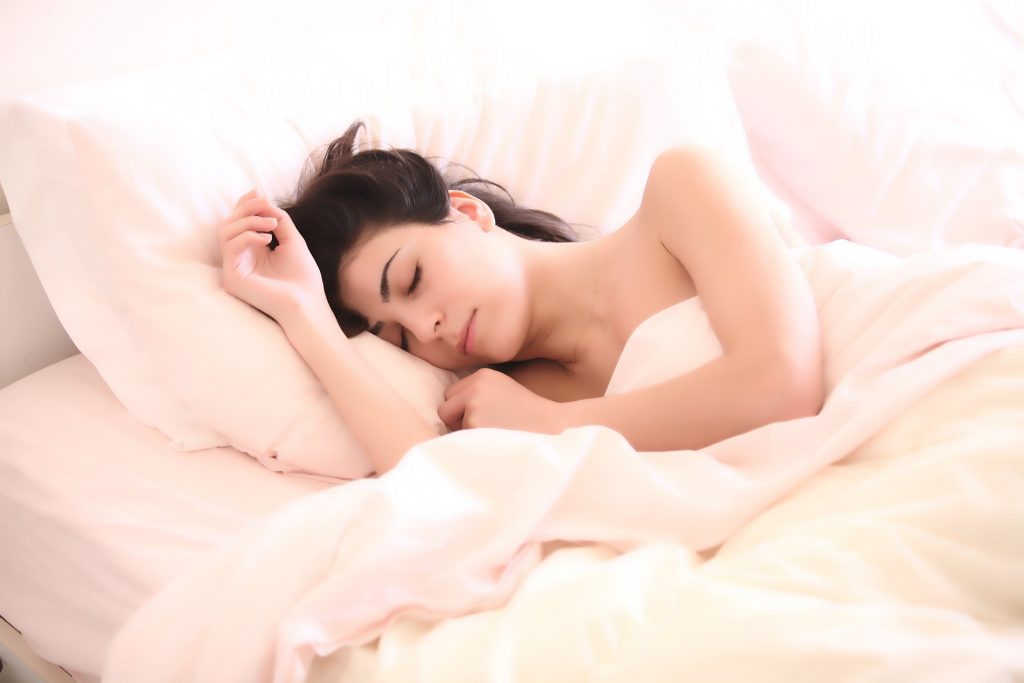Sleep – the corner stone to having a happy life. One of the reasons I use hypnosis in the therapy room is that it creates a clinical setting for REM sleep to happen, it also shows you how good sleep should feel. The following article explains the different stages of sleep and why each stage is important. Great dreams!
Comment by Mark Jones

Each morning you can review your heart rate, breath rate and sleep graphs with information about how much light, deep and REM sleep you had the night before.
Now more than ever, we can quantify exactly how good or bad our sleep patterns are. Smart beds, sleep trackers and wearables of all sorts help us track our sleep.
But all that data only makes sense if you know what you’re aiming for and what it all means. Here’s how to decode your sleep cycles so you can make the most of your shut-eye.
What are sleep cycles?
Humans sleep in cycles. The best known is REM, which stands for rapid eye movement, because your eyes move rapidly during this stage of sleep. In general, scientists and researchers divide the cycles into two broad categories: non-REM and REM sleep. I’m going to break down non-REM sleep into two further categories that are often used by sleep trackers.
Light sleep
Light sleep is the beginning of your sleep cycle and your body’s way of winding down. Breathing, heart rate and muscle changes prepare your body for the deeper sleep to come.
Light sleep is broken down into stages 1 and 2. The first stage is simply the act of transitioning from awake to asleep and makes up less than 3 percent of your nightly sleep cycles.
Stage 2 is where light sleep gets to work. Fully asleep, your brain activity slows but includes bursts of electrical activity. Neuroscience research suggests that these spurts of electrical activity are a crucial part of your brain’s process of transferring information from short- to long-term memory. That’s why many scientists agree that sleeping after studying or learning new material helps you retain information at a higher rate.
Most people spend more time in stage 2 during long periods of sleep than any other stage, and that’s a good thing since it’s such an important part of brain health and emotional processing.
Deep sleep
Deep sleep is often confused with REM sleep, but the two are actually very different. Deep sleep is the part of your sleep cycle in which your body recovers from the day. Your body secretes growth hormones associated with cellular repair and rebuilding.
When you get enough deep sleep, you wake up feeling refreshed. Without enough, you’ll feel tired even if you got a full night of rest.
Typically, you’ll see deep sleep on your sleep-tracking devices in the first half of your night. It happens in relatively long segments, while your heartbeat and breathing slow to their lowest levels.
This is also the stage of sleep where it is most difficult to wake you up. Deep sleep is as important, if not more important, than REM sleep when it comes to physical rest, so keep an eye on this stage if you’re tracking your sleep patterns.
REM sleep
Perhaps the most famous of the sleep cycles, REM sleep is interesting and almost the stuff of sci-fi. Most people experience REM sleep around 90 minutes after falling asleep.
REM sleep goes even deeper into brain recovery, dreaming and processing memories and emotions. This is the sleep stage in which your eyes move rapidly. If you’ve ever caught your dog or cat in a REM stage, you’ll recognize the darting eyes.
Your brain waves in REM sleep are closer to wakefulness than deep sleep, and your breathing becomes irregular and speeds up. Blood pressure and heart rates also increase to near awake levels in REM sleep.
It’s not surprising that with so much near-wakefulness, this stage is when most of your dreaming occurs.
Fun fact: In REM sleep, your arm and leg muscles are temporarily paralyzed by two chemicals in your brain that prevent you from physically acting out your dreams and punching your partner in the face instead of that alien bad guy.
Why it matters
Sure, you could do just as hundreds of generations of humans before us did and just fall asleep without any sleep trackers and trust Mother Nature. In fact, I encourage you to do that, especially if large amounts of data about your body doesn’t ease your mind.
If you are interested in sleep data though, understanding and correlating how you feel with how well you progress through the sleep stages can help you make informed decisions about your bedroom environment or schedule.